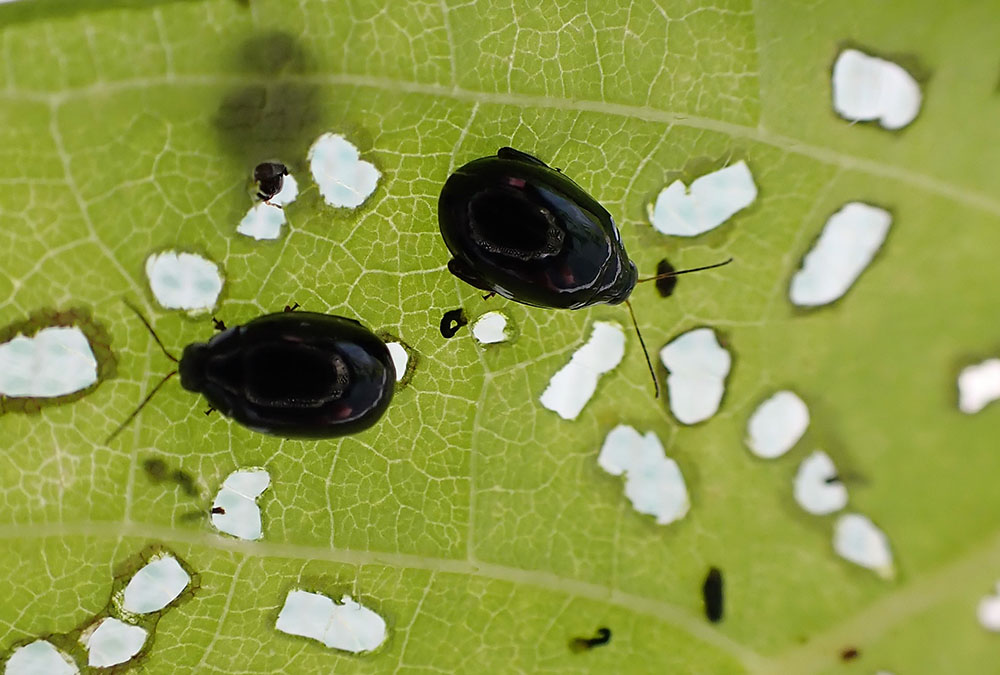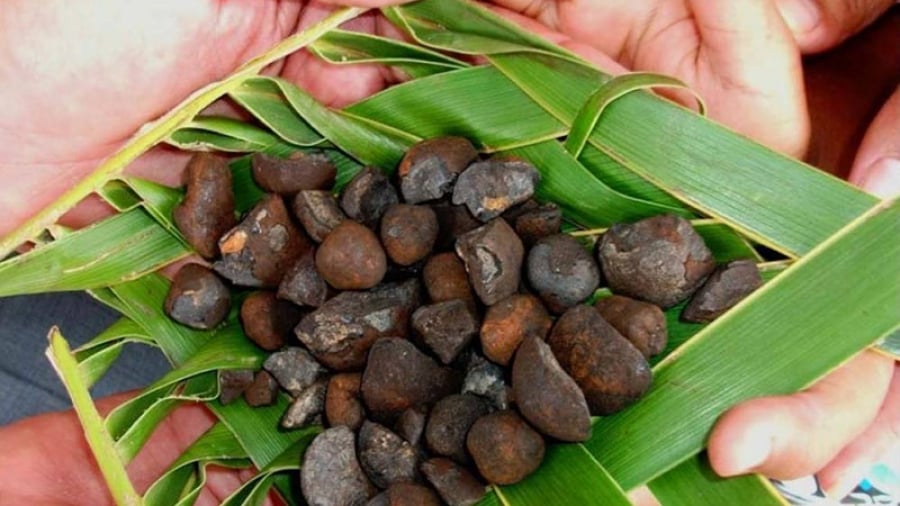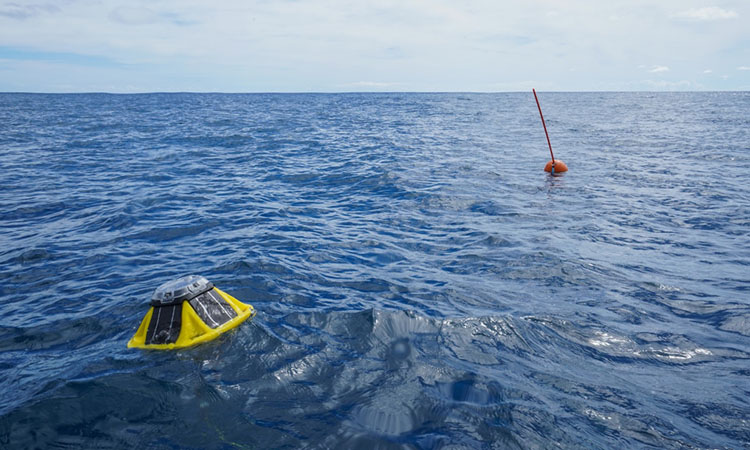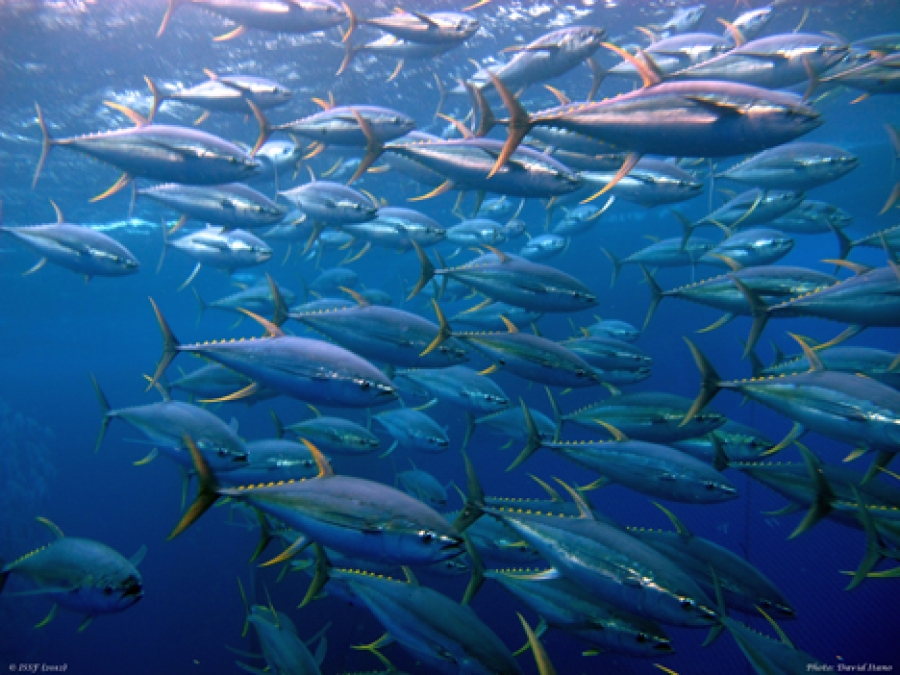Introduced insects have landed on Rarotonga making it their new home in a combined effort to control an invasive tree
A consignment of African tulip tree flea beetles was released on the island over the weekend as part of a joint effort between the Cook Islands Ministry of Agriculture and Manaaki Whenua Landcare Research (MWLR) in New Zealand.
The beetles are known to be a natural enemy of the African tulip tree – being used for the first time in the Pacific islands to try and reduce the spread and density of the invasive species.
African tulips are considered one of the 100 worst alien invasive species in the world and one of the top 30 terrestrial plants.
It was originally introduced to the Cook Islands as an ornamental plant and controlling its spread through mechanical and herbicidal actions has proven to be labour intensive and expensive – as experienced in Fiji.
Ringbarking has also been found to be ineffective as only the above-ground parts of the plant are killed.
Although herbicide application can kill the plant, that method has been found impractical as the tree already covers large areas of land, as a result of the vast amount of seeds produced.
With methods to eradicate it falling short, an Environmental Impact Assessment (EIA) report on behalf of the Ministry of Agriculture in 2015 recommended the introduction of the galling mite which feeds on the tree.
It was followed by an EIA report on behalf of the Ministry of Agriculture in 2019 which recommended the introduction of the African tulip tree flea beetle.
MWLR research leader Dr Quentin Paynter said the gall mite, which forms leaf galls that stunt new growth, had already been successfully established in Rarotonga.
“It is expected that the combined impact of both agents will be needed to reduce the invasiveness of African tulip trees,” Dr Paynter said.
“Rigorous testing has confirmed that both the mite and the beetle are African Tulip tree specialists that post no risk to other plant species in the Pacific region.”
The beetles arrived in New Zealand from South Africa in late February but the Covid-19 lockdown disrupted proceedings so a new generation of beetles was reared at the MWLR containment facility in Auckland to be ready for travel to Rarotonga.
Dr Paynter and MWLR weed biocontrol technician Stephanie Morton released the beetles.
“Our colleague at the Cook Islands Ministry of Agriculture, Dr Maja Poeschko, located a suitably isolated release site that is safe from public health staff spraying insecticides for mosquito control to combat dengue fever,” Dr Paynter said.
“We initially released 40 beetles in four nylon rearing sleeves, to keep them contained and ensure beetles didn’t rapidly disperse so their offspring couldn’t find one another.
“We set 26 free just in case we hadn’t chosen an ideal release site.
“When we returned to the site two days later, we easily found several of the freely released beetles, indicating they did like the release site.”
The Cook Islands Natural Heritage Trust research officer Gerald McCormack said he had been part of the technical advisory group for the project.
“The flea beetle is known to feed exclusively on African Tulip in Africa so it was an obvious choice to trial as a biocontrol,” McCormack said.
“Basically both the African Tulip and the flea beetle are tropical; the African Tulip loves it here, and we can only hope the beetle also loves it here.”
McCormack said he hoped the beetle would flourish and reduce the abundance of African Tulip to let native forest recover in affected areas.
He said there were no risks.
“There seems to be nothing negative about the beetle, of which we already have a few close relatives, and hopefully it will significantly reduce the amount of African Tulip,” said McCormack.
This story was produced by Al Williams, published at Cook Islands News on 11 June 2021, reposted via PACNEWS.
Banner: Two days after the beetles were released, there are signs of damage on the leaves of African tulip trees. Photo: Cook Islands News




